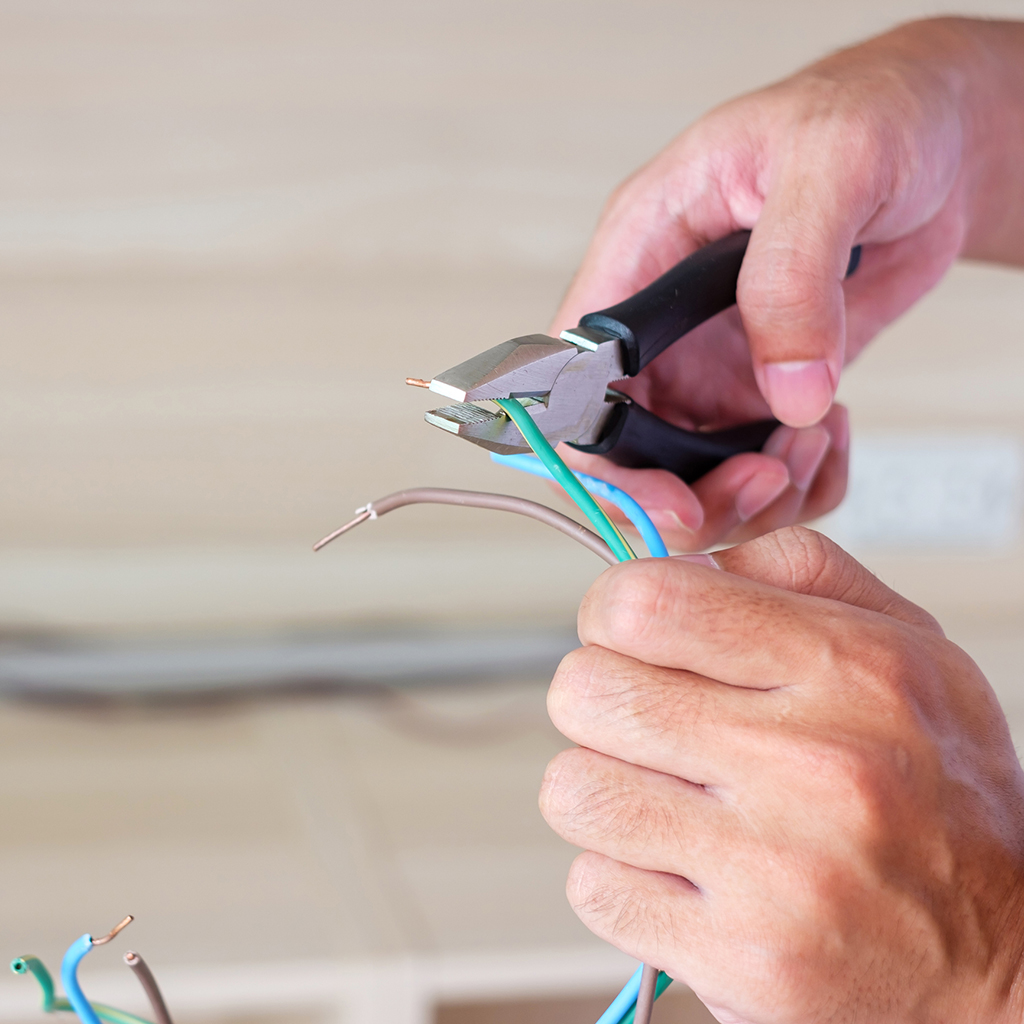
What’s The Difference Between A Commercial And Residential Electrician? | Wilmington, NC
In today’s age and time, we’re wholly dependent on electricity both in our homes and businesses. However, electrical systems are predisposed to malfunctioning, leading to highly inconvenient power outages. In such instances, an electrician is the first person you’re likely to contact. They have the skills, tools, and experience to handle all your electrical needs. However, in the absence of a residential electrician during periods of high demand, can you hire the services of a commercial electrical technician to deal with electrical issues you may be experiencing in your home?
In this piece, we discuss the differences between a residential and commercial electrical technician.
What Does a Residential Electrical Technician Do?
As the name implies, a residential electrician is an electrical technician trained and licensed to handle electrical issues specific to private homes. They’re responsible for installing, repairing, and maintaining home wiring. They also install lighting fixtures, upgrade circuit breakers, inspect electrical systems, and provide regular maintenance services.
These technicians further break down into two main types:
- Regular electrical technicians: These professionals handle all electrical issues for single-family homes, townhouses, and apartments.
- Emergency electrical technicians: These technicians specialize in emergency repairs and are available 24/7. They’re particularly useful for electrical emergencies and show up on short notice.
- Master electrical technicians: Master electrical technicians have more advanced training and rank higher than regular technicians. As such, they can handle more complex responsibilities like large-scale wiring projects.
A residential electrical expert can install wiring for:
- New construction residential buildings
- Fixtures, outlets, switches, and lighting
- surveillance systems and smoke detectors
Some typical responsibilities of residential electrical technicians include:
- Installation, repair, and maintenance of residential wiring, outlets, appliances, fixtures, and devices
- Ensuring electrical wiring and installations are up to code
- Troubleshooting electrical systems for problems
- Guiding homeowners and suitable electrical systems and appliances for their homes
What Does a Commercial Electrical Technician Do?
Commercial electrical technicians specialize in electrical systems in commercial settings. They handle wiring and electrical systems in small-scale commercial setups like restaurants, retail stores, and offices. Some companies even have in-house electrical technicians to handle electrical issues within the business premises. Like residential electrical technicians, commercial technicians can also be regular, emergency, or master technicians.
A commercial electrician is responsible for the following:
- The installation, repair, and maintenance of electrical systems and devices in a business or workplace setting
- Testing existing and new power sources for enough current
- Drawing and interpreting wiring diagrams and drawings
- Ensuring the wiring in commercial spaces is up to code
However, it’s worth noting that commercial and industrial electrical technicians are not the same. While the former handle small-scale projects, the latter deals with large-scale industrial settings like factories and processing plants.
What Makes Commercial and Residential Electrical Technicians Different?
Here are some differences between commercial and residential electricians:
The Services They Offer
As mentioned above, residential technicians work on people’s homes and extensions. They install electrical systems, handle wiring, inspect your current setup for issues, and make the necessary repairs. These technicians also conduct routine maintenance on your home’s electrical setup.
On the other hand, commercial electrical technicians handle electrical work in commercial setups. They’ll install, repair, and maintain wiring in retail stores and restaurants. They also regularly inspect the wiring and electrical systems in these spaces to ensure their proper functioning.
The Scale of Projects They Handle
Residential electrical technicians handle projects that are smaller in scale than commercial ones. Residential technicians’ responsibilities revolve around single-family homes like condominiums and apartments. On the other hand, commercial technicians deal with entire restaurants, business centers, and retail stores. Some of these business setups have multiple floors and extensive floor space.
As such, commercial technicians typically take on a greater workload. They require more skill, labor, tools, and time, although the workload varies from one client to the next. However, residential technicians sometimes take on larger projects when they work on large homes and multi-family residential setups.
Their Skills and Training
All residential electrical technicians must have a high school diploma or an equivalent. They must also complete an apprenticeship and have between 8,000 and 10,000 hours of relevant work experience. They must also pass the Residential Electrical Journeyman exam to get their license. Some states may have additional requirements to become an electrician.
Commercial technicians also require a high diploma or equivalent certification. They must also undergo an apprenticeship under a licensed electrician and have at least 8,000 hours of on-site experience. After that, they must complete the Commercial Journeyman Exam to become licensed commercial electrical technicians.
Both technicians must understand the National Electric Code and local building codes specific to their states or cities. Although the path to becoming a commercial and residential electrician looks similar, they undergo different training and take different tests for their licenses.
The Equipment They Use
Residential electrical technicians deal with relatively low-voltage electrical systems compared to commercial technicians. As such, residential technicians use equipment that can handle voltages between 120 and 240 volts. On the other hand, commercial technicians use equipment that can handle up to 480 volts. This is enough to handle the electrical load of commercial spaces.
What They Charge
Commercial technicians typically charge more than residential ones because of the scale and complexity of their projects. It also explains why commercial technicians earn more than residential ones.
However, how much the technician charges depends on their experience level and the type of project in question. Some residential projects cost more than commercial ones.
Residential and Commercial Electrical Technicians at Your Services
Understanding the difference between commercial and residential electrical technicians is important to hire the right electrician. Remember, all commercial and residential technicians must have a valid license to operate in the city. At Mister Sparky of Wilmington, we’re the leading electrical service provider. We guarantee professionalism, experience, and quality services. Contact us today for all your residential and commercial electrical needs.
See our most recent blog on this topic here.

